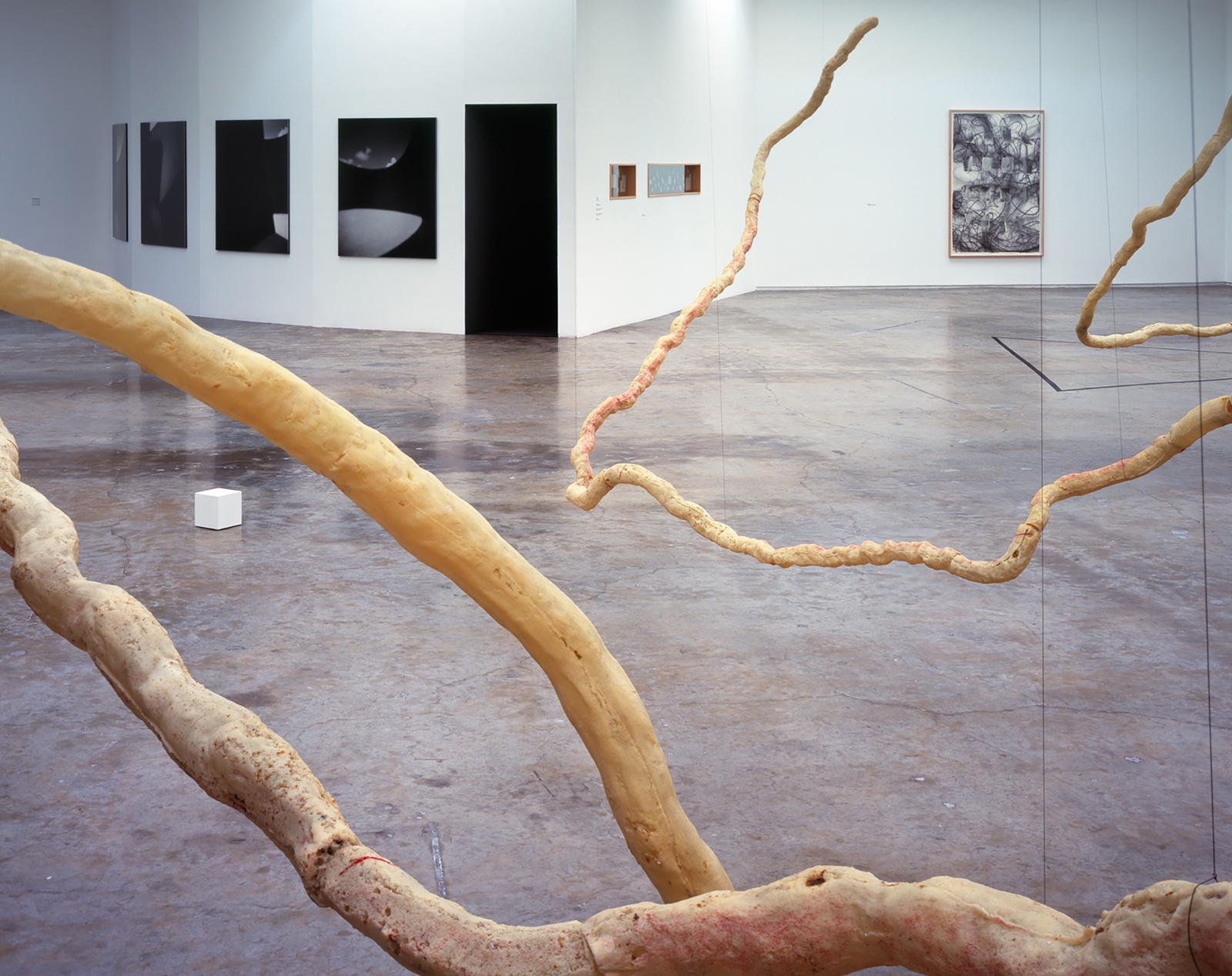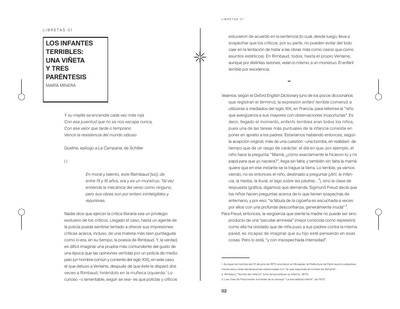
Playing with the selected pieces’ scale and resorting to an intricate exhibition design—including narrow hallways leading to wide-open galleries—the curatorial project behind Les enfants terribles tries to re-instill in us the feeling of smallness we had as children facing a world built on a scale meant for adults. The space also attempts to remind viewers that, before we grew up, became responsible and learned to follow socially established norms, we brazenly defied authority and rules in pursuit of our own enjoyment.
The exhibition takes its title from Jean Cocteau’s 1929 novel of the same name. For the exhibition, curator Michel Blancsubé set up dialogues between the pieces in order to create an overarching narrative: “Some pieces always have important historical or political baggage, but this was not the exhibition’s main focus. Indeed, the show’s primary concern is expressed by its title, Les enfants terribles, which, in my mind, is not merely politically confrontational or rebellious, but rather much more open-ended. It’s about recreating the impression you have as a child that everything around you is incredibly big; it’s also about not respecting, not accepting things the way they are.”
The pieces featured in the exhibition are noteworthy due to the quality of their craftsmanship, but also because of their sometimes enormous scale—for instance, Eric Wesley’s Robe (2007), Urs Ficher’s abyss/debauched oratorio/roadshow/abyss (2007), and especially Piero Golia’s Bus (2008). This indeed represented a major a challenge to the exhibition design team at La Colección Jumex.
Les enfants terribles brings together the work of artists such as Francis Alÿs, Iñaki Bonillas, Mathieu Briand, Fernando Carabajal, Francisco Castro Leñero, Martin Creed, Minerva Cuevas, Gino De Dominicis, Sebastian Diaz Morales, Urs Fischer, Tom Friedman, Renato Garza Cervera, Piero Golia, Daniel Guzmán, Mark Handforth, Jeppe Hein, Jonathan Hernández, Luisa Lambri, Gonzalo Lebrija, Sol LeWitt, Richard Long, Robert Longo, Sebastián Rodríguez Romo, Thomas Ruff, Jim Shaw, Gary Simmons, Rudolf Stingel, Hiroshi Sugimoto, Mungo Thomson, Wolfgang Tillmans, Eric Wesley and Richard Wright.
- Ruff, Thomas
- Cuevas, Minerva
- Alÿs, Francis
- Creed, Martin
- Long, Richard
- Lebrija, Gonzalo
- Guzmán, Daniel
- Fischer, Urs
- Thomson, Mungo
- Romo, Sebastián
- Lambri, Luisa
- Bonillas, Iñaki
- Tillmans, Wolfgang
- Wright, Richard
- Shaw, Jim
- Longo, Robert
- Carabajal, Fernando
- Simmons, Gary
- Sugimoto, Hiroshi
- Wesley, Eric
- LeWitt, Sol
- Hein, Jeppe
- Handforth, Mark
- Golia, Piero
- Cervera, Renato Garza
- Friedman, Tom
- Morales, Sebastián Díaz
- Dominicis, Gino De
- Leñero, Francisco Castro
- Briand, Mathieu








